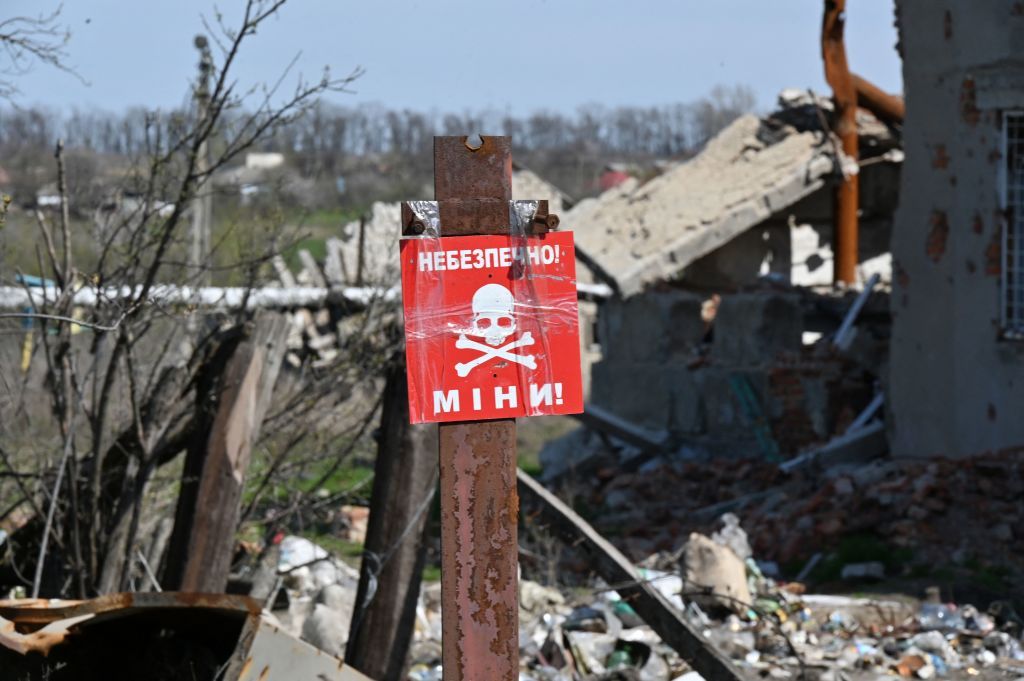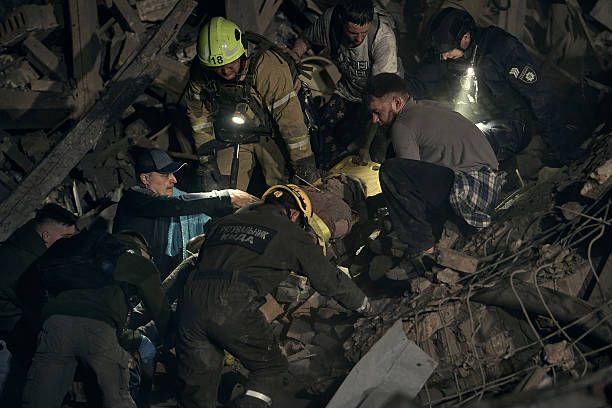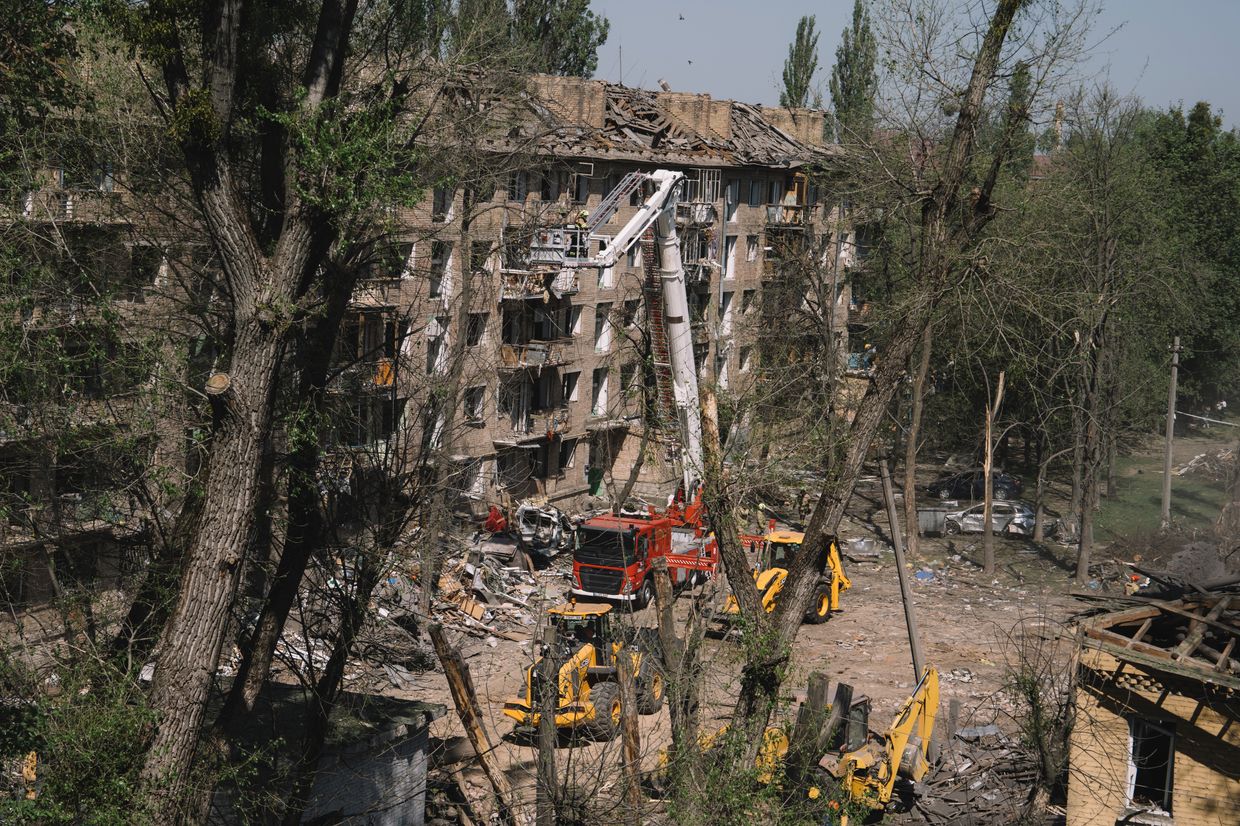Kremlin spokesperson Dmitry Peskov rejected the idea of a 30-day ceasefire between Russia and Ukraine, claiming in an interview with ABC News on May 10 that it would be "an advantage" for Ukraine.
The visit marks Merz’s first trip to Ukraine, and the first time all four leaders have travelled there together.
"Our involvement in the war was justifiable, and this belongs to our sovereign rights," North Korean dictator Kim Jong Un said. "I regard this as part of the sacred mission we must execute for our brothers and comrades-in-arms."
The number includes 1,310 casualties that Russian forces suffered over the past day.
"We have a plan B and a plan C. But our focus is plan A, the essence of which is to get everyone's support" for Ukraine's accession, EU foreign policy chief Kaja Kallas said.
"(T)he presence at the Victory Parade of a country that bombs cities, hospitals, and daycares, and which has caused the deaths and injuries of over a million people over three years, is a shame," Polish Prime Minister Donald Tusk said.
"According to the participants of the performances, their goal is to remind the civilized world of the barbaric actions of Moscow, which for many years and decades has systematically violated international law," a source in Ukraine’s military intelligence agency (HUR) told the Kyiv Independent.
"I have great hope that an agreement for a ceasefire in Ukraine will be reached this weekend," German Chancellor Friedrich Merz said on May 9, shortly before traveling to Kyiv alongside the leaders of France, Poland, and the U.K.
U.K. Prime Minister Keir Starmer, French President Emmanuel Macron, German Chancellor Friedrich Merz, and Polish Prime Minister Donald Tusk will arrive in Kyiv early on May 10.
The United States embassy in Kyiv on May 9 issued a warning that Russia could launch "a potentially significant" attack in the coming days, despite Putin's self-declared Victory Day "truce."
The sanctioned oil tankers have transported over $24 billion in cargo since 2024, according to Downing Street. The U.K. has now sanctioned more shadow fleet vessels than any other country.
The sanctions list includes 58 individuals and 74 companies, with 67 Russian enterprises related to military technology.
Allies alarmed as Trump pushes Ukraine peace deal allowing Russia to keep seized land, CNN reports

U.S. allies are voicing growing alarm over the Trump administration’s proposed framework to end the war in Ukraine, which would allow Russia to retain large areas of seized Ukrainian territory.
Multiple diplomatic sources told CNN that officials in Europe and Asia are bracing for the outcome of renewed U.S.-Russia talks and fear the plan sends a dangerous message. The proposal, presented in Paris last week, includes potential U.S. recognition of Crimea as Russian territory and Ukrainian territorial concessions. Vice President JD Vance reinforced this stance, saying on April 23, there’s a need "to freeze the territorial lines at some level close to where they are today."
Trump, when asked what Russia would give up in exchange, responded: "Stopping the war, stopping [from] taking the whole country, pretty big concession."
The remark has unsettled many diplomats, with one Eastern European official warning that the framework threatens the integrity of international law: "This is very much about our own existence and the weakening of any safeguards that my or other countries have for our own independence."

"If one country in Europe is forced to give up parts of its legal territory... no country in Europe or elsewhere can feel safe, NATO or no NATO," the diplomat told CNN.
In high-level meetings held in London on April 23, U.S., European, and Ukrainian officials reportedly made progress in narrowing differences. U.S. envoy Keith Kellogg called the talks "candid, positive and productive." At the same time, a European official said negotiators had "managed to convince the Ukrainians to convince themselves to get in a more U.S. administration-friendly position." Still, the core issue—territorial concessions—remains fraught. A German official acknowledged that "the Ukrainians are coming around," but emphasized they "have red lines they cannot cross."
One Ukrainian lawmaker described any deal requiring major territorial losses as "political suicide," warning it would not be approved by parliament. European diplomats admitted that any agreement acceptable to Moscow would appear "unfavorable to the Ukrainians," but noted that "within reason, the Ukrainians will have to come to terms with something that may be second best to a deal they would have wanted two years ago."
Questions remain about how the U.S. intends to implement the plan, with one American official describing the administration’s approach as "somewhat directionless, rudderless, confused."

Most Popular

After 3 years of full-scale war in Ukraine, Europe announces plan to ban all Russian gas imports

Ukraine, Europe's ceasefire proposal includes US security guarantees, no recognition of Crimea, Reuters reports

Journalist Roshchyna's body missing organs after Russian captivity, investigation says

After Russia's deadly attack on Kyiv, Vance reposts denunciation of Zelensky

Ukrainian sea drone downs Russian fighter jet in 'world-first' strike, intelligence says
Editors' Picks

How medics of Ukraine’s 3rd Assault Brigade deal with horrors of drone warfare

As Russia trains abducted children for war, Ukraine fights uphill battle to bring them home

'I just hate the Russians' — Kyiv district recovers from drone strike as ceasefire remains elusive



